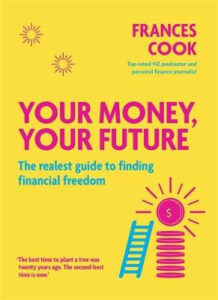
Are you throwing money away?
Written by R. A. Stewart
New Zealand’s kiwisaver scheme is a retirement scheme for New Zealanders. There are many features and benefits of joining kiwisaver.
What is the difference between a feature and a benefit?
A feature of kiwisaver is that the money is locked up until you reach the age of 65.
The benefit is that you will have a nest egg waiting for you when you retire.
Here is the main benefit of kiwisaver.
The government will deposit $520 into your kiwisaver providing your contribution is at least $1040 during that financial year.
People who are not contributing to kiwisaver or have not even joined are missing out on all of this money.
Why?
It is hard to fathom why anyone would not join kiwisaver.
There will not be a single person who reaches the age of 65 who regrets that they contributed to kiwisaver all of their lives.
It is a matter of asking the question, “What will my future self thank my present self for”?
The key to kiwisaver is to keep contributing irrespective of what the markets are doing.
Investors will be rewarded for their consistency.
Some people have prioritized other things such as sky TV, cats and dogs, lotto, smoking, and booze over their future prosperity.
It is all about choice and it is something everyone has.
Any New Zealander is able to join kiwisaver.
Any one of any age, from the day a baby is born to those already retired.
It is important to point out that only those aged from 18-65 are eligible for the government money. It is still worthwhile for those age groups which are not eligible for the government top up to join kiwisaver because it will give the young ones a head start in life and who knows, a rich uncle may leave them some money in his will. It doesn’t pay to fall out with your family by making false allegations about your cousin.
The retired folk can treat kiwisaver as an investment; one which you have access to.
There are circumstances when you are able to withdraw money from kiwisaver, they are:
(a) For bond money if applying for a flat to rent, but only under thirty year olds are eligible to apply.
(b) You may use a portion of your kiwisaver as a deposit on your first home. Most people who take this option are in their thirties.
(c) Moving overseas permanently.
(d) Terminal illness
(e) Hardship
There are some hoops to jump through when trying to withdraw your kiwisaver for hardship reasons.
There are several books on personal finance which I recommend with my favourite New Zealand authors being Frances Cook, Mary Holm, and Martin Hawes. Check them out. Maybe your local library will stock their books.

With so much information on personal finance available there is no excuse for being financially illiterate. Not joining kiwisaver when you have the means to is just stupidity.
If you are one of these people then you are just throwing money away
About this article:
You may use this article as content for your blog, website, or ebook.
Read my other articles on www.robertastewart.com






















